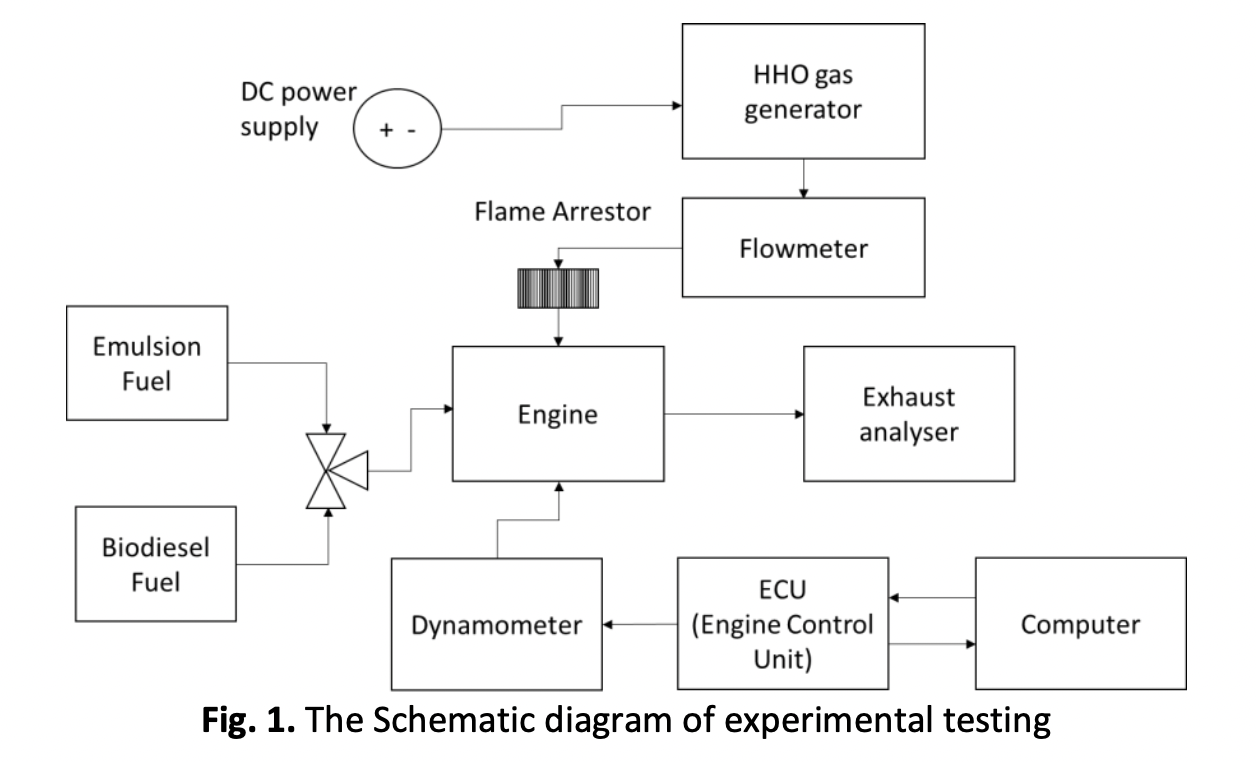Water-in-Biodiesel Emulsion with Hydroxy (HHO) Gas Fuel Enrichment for Single-Cylinder Diesel Engine Application
DOI:
https://doi.org/10.37934/arfmts.116.1.130138Keywords:
High blending biodiesel, water-in-biodiesel emulsion, hydroxy (HHO), diesel engineAbstract
The rising issue of the depletion of fossil fuels opened a new pathway to seek alternative fuels to fulfil World Sustainable Development Goals (SDG). The application of high-blending biodiesel is possible however, it causes the diesel engine to perform poorly due to high viscosity, high fuel consumption, and increased NOx emission. To comply with the strict regulation, the idea of combining alternative fuels of high blending biodiesel, water-in-biodiesel emulsion, and hydrogen is seen as possible to solve the issue of each alternative fuel. Therefore, this study focused on the effect of high blending of biodiesel, water-in-biodiesel emulsion with hydroxy (HHO) enrichment in single-cylinder diesel engines on engine performance and exhaust emission. The fuel tested for this study are B10, B50, and an emulsion of B50 with the addition of HHO known as B50H and tested on engine speeds of 2400rpm under various loading conditions of 1kW, 2kW, 3kW, and 4kW. The result showed the B50H showed improvement in Fuel Consumption (FC) by 4%, 5% for Brake Thermal Efficiency (BTE), and reduced Nitrogen oxide (NOx) by 23% compared to B10 fuel. Thus, the combination of high blending of biodiesel, water-in-biodiesel emulsion, and HHO gas successfully improved diesel engine performance and reduced harmful exhaust emissions to promote clean and renewable energy, without depending on current diesel fuel.
Downloads

































